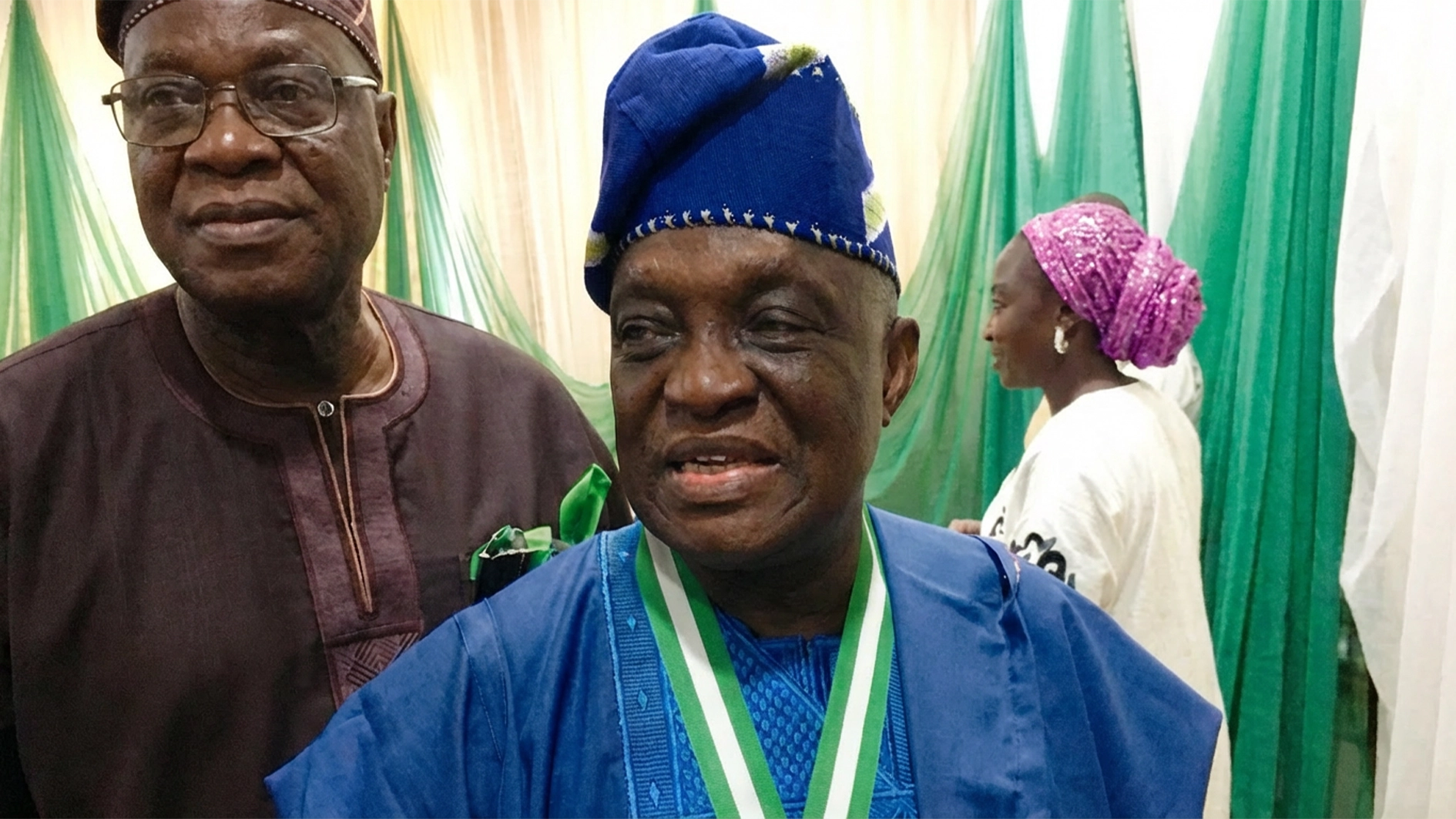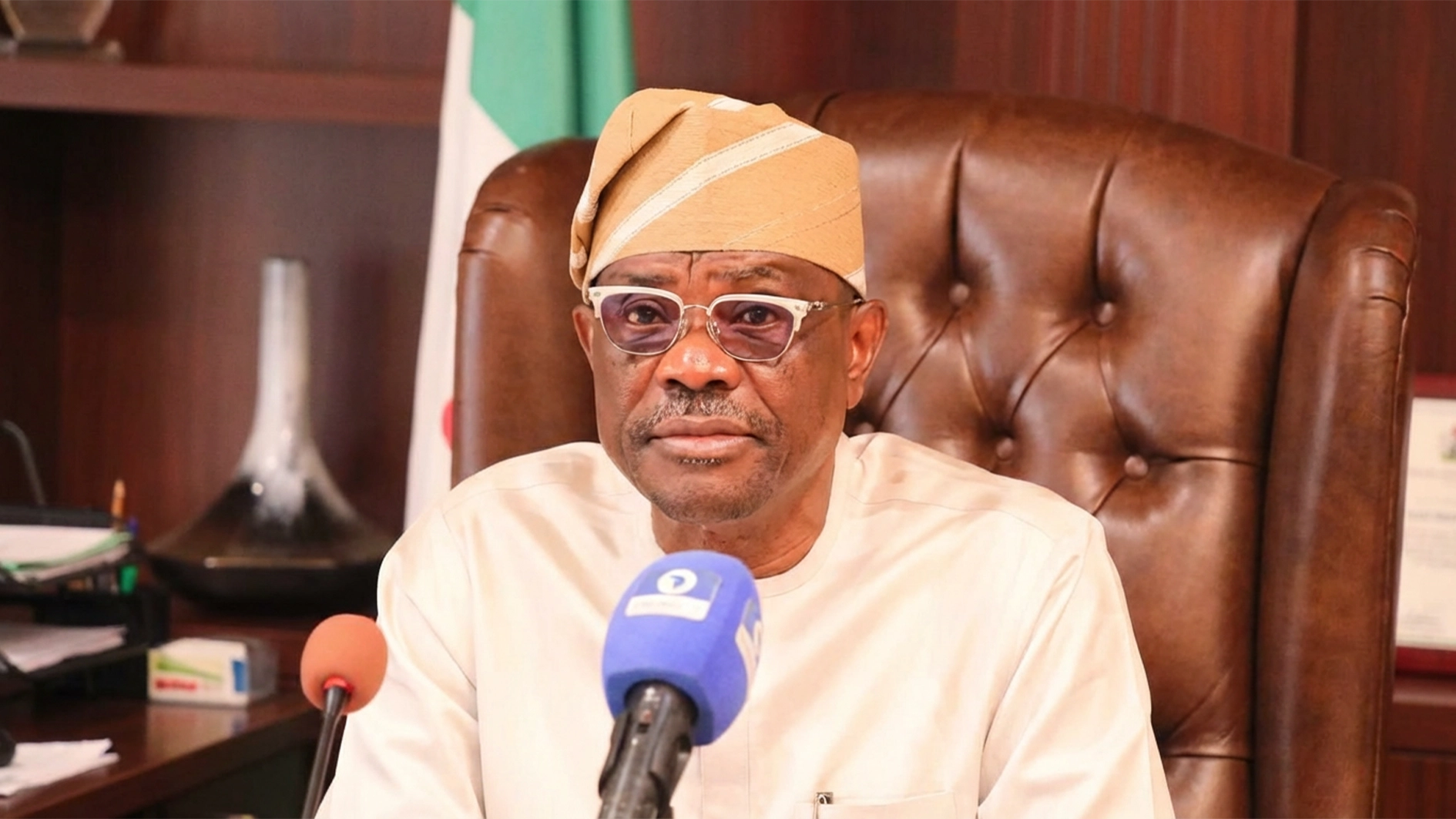
The Kaduna Zone (Kaduna, Kano, Niger and Sokoto states and the Federal Capital Territory) had Navy Captain M.A. Elegbede as the Chairman while the members were Lt-Colonel I.D. Gumel, Lt-Colonel M. Maina, Wing-Commander J.P. Obakpolor and Mr. Justice P.P. Nwokedi. It was the Kaduna zone headed by Navy Captain Muftau Adegoke Babatunde Elegbede (1939-1994) that jailed the former Kano state governor, Sabo Bakin Zuwo (1934-1989). He was tried and sentenced to 23years in prison on charges of corruption by the Kaduna Zone. Bakin Zuwo was released from jail in January 1988. He died on 16 February, 1989 in a German hospital, where he had been taken after being in a fall. He was buried in Kano, his beloved city, in whose politics he had featured prominently for several decades. Alhaji Sabo Bakin Zuwo was survived by three wives and 26 children. Sadly, Captain Elegbede was assassinated by gunmen on 19 June 1994 along the Gbagada/Oworonsoki expressway in Lagos.
It was the Ibadan Zone that jailed Professor Ambrose Folorunsho Alli. The Zone was headed by Major General Charles Bebeye Ndiomu (1934-2002) from Odoni in Sagbama Local Government Area of Bayelsa State. Professor Alli from Ekpoma in the then Bendel state was educated at the Immaculate Conception College in Benin City before going to St. Patrick’s College, Asaba, and to the School of Agriculture in Ibadan.
He trained as a medical laboratory technologist at the University College, Medical Laboratory, Ibadan, from 1950-1953, and studied Medicine at the University College of Ibadan from 1953 to 1960. Alli did further Medical studies in Britain after that and worked in hospitals there and in Zimbabwe (1960-1962). Professor Alli returned to Nigeria in 1966 to begin a distinguished academic career. He was a Professor of Morbid Anatomy at Ahmadu Bello University, Zaria from 1969 to 1971, and at the University of Ibadan from 1971 to 1974. From 1974 to 1979, he was Head of the Department of Pathology, University of Benin. He was tried on corruption charges and sentenced to a total of 66 years’ imprisonment. The sentence was later reviewed and reduced to seven years.
His health deteriorated while in jail. Alli was released on 13 February, 1988 only after the payment of N983, 000.00 raised by his friends into the government chest. He died on 22 September, 1989 (his 60th Birthday) at the Lagos State Teaching Hospital. On page 17 of his book titled “MY DIALOGUE WITH NIGERIA”, the former Chief of Army Staff, General Julius Alani IpoolaAkinrinade wrote that “some people have pointed out seeming contradictions in the trial of former public officers. For instance, they say that while some former governors were jailed for accepting money from contractors, the contractors themselves were not jailed and while Abba Musa Rimi and Wilberforce Juta were jailed for giving money to legislators, the legislators themselves were not jailed for taking the money. I believe that in both cases, the governors were wrong to have taken the money and spent public funds in a way not permitted by law.
People are confused because the government has not bothered to explain and they are in fact, edgy because they regard the judgments as contradictory. The government has to be open and, at least, brief the people on why it takes certain actions. I don’t think this government has someone to do public relations for it properly”. It was Governor Lucky Igbinedion of Edo state who renamed Bendel State University to Ambrose Alli University, Ekpoma. The governor was assisted following a motion moved by Honourable Pascal Ugbomeh (Etsako Constituency 1) of the Edo state House of Assembly while the right honourable Thomas Okosun presided as Speaker in the then Edo House of Assembly, in 1999.
It was during that period that the Ogbe stadium in Benin was renamed Samuel Ogbemudia Stadium following a motion passed by the Edo House of Assembly. To his credit, the University has produced notable Nigerians like Tony Elumelu, Pastor Chris Oyakhilome, Don Jazzy, Peter Godsday Orubebe, Alibaba Akpobome, Omawunmi, Benedict Ayade, Samuel Oboh, Francis Odega, Buchi, Dickson Tarkighir, Aisha Buhari, Festus Keyamo, Ovire Peggy, Alex Usifo, Victor Ehikhamenor, AliyuDoma, AusbethAjagu, Beatrice Jedy-Agba,etc.
On February 3, 1976, that is ten days before he was assassinated, General Murtala Mohammed (1938-1976), GCFR, made a broadcast to the nation in which he declared on that day, “The Assets Investigation Panel—-This panel has examined the assets of all the former Military Governors, the former Administrator, East-Central state and some former Federal Commissioners. The details of the decisions on each of the former public officers so investigated will be announced immediately.
Suffice it to say that all the ex-Military Governors and the former Administrator of East-Central State with the exception of two were found to have grossly abused their office and guilty of several irregular practices. Clearly this investigation has revealed that they had betrayed the trust and confidence reposed in them by the nation. Those of them who wore uniforms betrayed the ethics of their profession and they are a disgrace to those professions.
They should be ashamed of themselves. They are therefore all dismissed with ignominy and with immediate effect. This order does not affect the two ex-Military Governors whose investigation did not reveal mal-practices and abuse of office. Where the public officers have not been able to explain satisfactorily their earnings and assets, these have been confiscated. The total value of assets confiscated is over 10million naira. In addition, the Ministry of Justice and the Police will look into the criminal aspects of their activities with a view to taking necessary legal action, if need be.
In disposing of the findings of the Assets Investigation Panel, our main concern has been to lay down guidelines and new standards for the conduct of public officers in this country. We have not tried to victimize anybody and each officer was given the opportunity to explain to the panel of professionals and experts, the way and manner he acquired his assets. We have also taken note that being Nigerians they were entitled to all facilities that were available to Nigerians in the ordinary course of business, subject, of course, to the ethics of the offices they held. I believe justice has been done.”
It was in the same broadcast that General Murtala Mohammed created seven additional states thereby increasing the states in Nigeria from 12 to 19. The panel he was referring to was headed by Justice Samuel Olu Okunribido from Isonyin near Ijebu-Ode in Ogun state. Justice Okunribido started his education at the Emmabyek School, Isonyin, 1932, Ijebu-Odu Grammar School, 1934-1937, Oduduwa College, Ile-Ife, 1937, Igbobi College, Lagos, 1938-1942, King’s College, University of London, England, 1952-1955, London School of Economics, University of London, 1958-1959, University of Cambridge, England, 1959-1960 in private legal practice, 1956, pupil crown counsel, Legal Department, Lagos, 1956, senior legal officer, Office of the Legal Counsel, United Nations Office Legal of Legal Affairs, 1966—1970, also legal adviser, United Nations Conference on Trade and Development, 1969-1970, Director of Public Persecutions of the Federation, 1970-1974, appointed Judge, Federal Revenue Court, 1974.
Justice Okunribido’s panel submitted its 298 page report to General Murtala Mohammed five days before the broadcast. The government white paper on the report was not released until after the death of General Murtala Mohammed. In the report two Ministers, Shehu Shagari and Shettima Ali Monguno were cleared of corrupt practices.
Also cleared were two governors—Brigadier General Christopher Oluwole Rotimi(85) of Western state and Brigadier Mobolaji Olufunsho Johnson (1936-2019) of Lagos state. All the ten other governors and the Ministers were found guilty of corruption and some of their properties were confiscated. In addition, another committee was set up by the Federal Government under the headship of A.G.K. Onikoyito probe the farms of two former Governors—Brigadier Samuel Ogbemudia (Bendel State) and Audu Bako (Kano State). Some of the former Ministers and former governors protested the government’s actions at that time.
They claimed that the panel was unfair to them since they were not given the right to give evidence. They alleged that the panel based its judgments on innuendos and rumours peddled by their enemies bent on destroying them. A few weeks before stepping aside, General Ibrahim Babangida in 1993 promulgated the Forfeiture of Assets Decree No. 54 of 1993. The Decree returned the properties seized by the Justice Okunribido’s panel of 1976 to some former governors and former Ministers. Mr. Richard Akinola, a notable Journalist has since published the names of the properties and their owners while Mr. Biodun Olufowobi alias Pabiekun, a notable lawyer and Mr. Tunde KamiluKasali, a lawyer and former Executive Secretary of the Revenue Mobilisation Allocation and Fiscal Commission have both argued on the issue of conviction or non-conviction.
Most Nigerians were alarmed by the action of General Babangida because he was part of the Supreme Military Council headed General Murtala Ramat Mohammed that seized those properties in 1976. Decree 54 was highly selective in that the decree only named certain recipients and not all found guilty by Justice Okunribido’s panel. On July 3, 1996, General Sani Abacha also promulgated the Forfeiture of Assets (Release of Certain Forfeited Properties etc.) Amendment Decree No. 21 of 1996. Regrettably names of former Ministers and former governors were again not mentioned. Among names not mentioned in the two decrees were that of AthonyEnahoro and Mr. J.O. Adeyemi-Bero, the former Chief of Staff to the first Military Governor of Lagos State, late Brigadier Mobolaji Johnson, who claimed that he was the owner of Plot 177 known as Eko Courts Towers, Victoria Island, Lagos and 25, Cooper Road, Ikoyi, Lagos. While Mr. Adeyemi-Bero went to court through his counsel, Professor A.B. Kasumu and lost later at the Supreme Court, Enahoro did not go to court.
Instead his family made an appeal to the government for leniency and pardon so that his properties which he built in Lagos even before 1960, and were confiscated by the Justice Okunribido panel could be returned to him. The exercise for pardon I am told started during the tenure of former President Goodluck Jonathan, GCFR. With the recent pardon by President Muhammadu Buhari, the expectation now is that the properties will finally be returned to the Enahoro family. As they say all is well that ends well. In spite of this, the contribution of Anthony Enahoro to this country is always appreciated.
A Nationalist per excellence, he moved the motion on Nigeria’s Independence, he led the Mid-West delegation to the ad-hoc Constitutional Conference in 1967, he became Nigeria’s Minister, led Nigeria’s delegation during the civil war to the Peace Conferences, he fought for Democracy during Abacha’s tenure at the risk of his personal safety. He did more for this country that we can ever be grateful for. He is a product of a family that has served the country meritoriously, notably my friend, Ben Enahoro, former Sergeant at Arms in the National Assembly, Mr Mike Enahoro, a veteran television broadcaster, Chief Edward Omokwale Enahoro, a diplomat, Professor Henry Ehikpehale Enahoro, a Professor of Mechanical Engineering and Peter Osajele Aizegbeobor Enahoro, a journalist. To crown it all, he is from Uromi, a city located in North East Esan, a sub ethnic city in Edo State that has produced the likes of Engineer Raymond Okpere, Sir Anthony Anegbode Eromosele, Tony Anenih, Air Vice Marshal Anthony Okpere, Anthony Cardinal Olubunmi Okogie, Chris Aire, Chief (Deacon) Vincent Agenmonmen and others.
Concluded.
Teniola, a former director at The Presidency, Wrote From Lagos.






